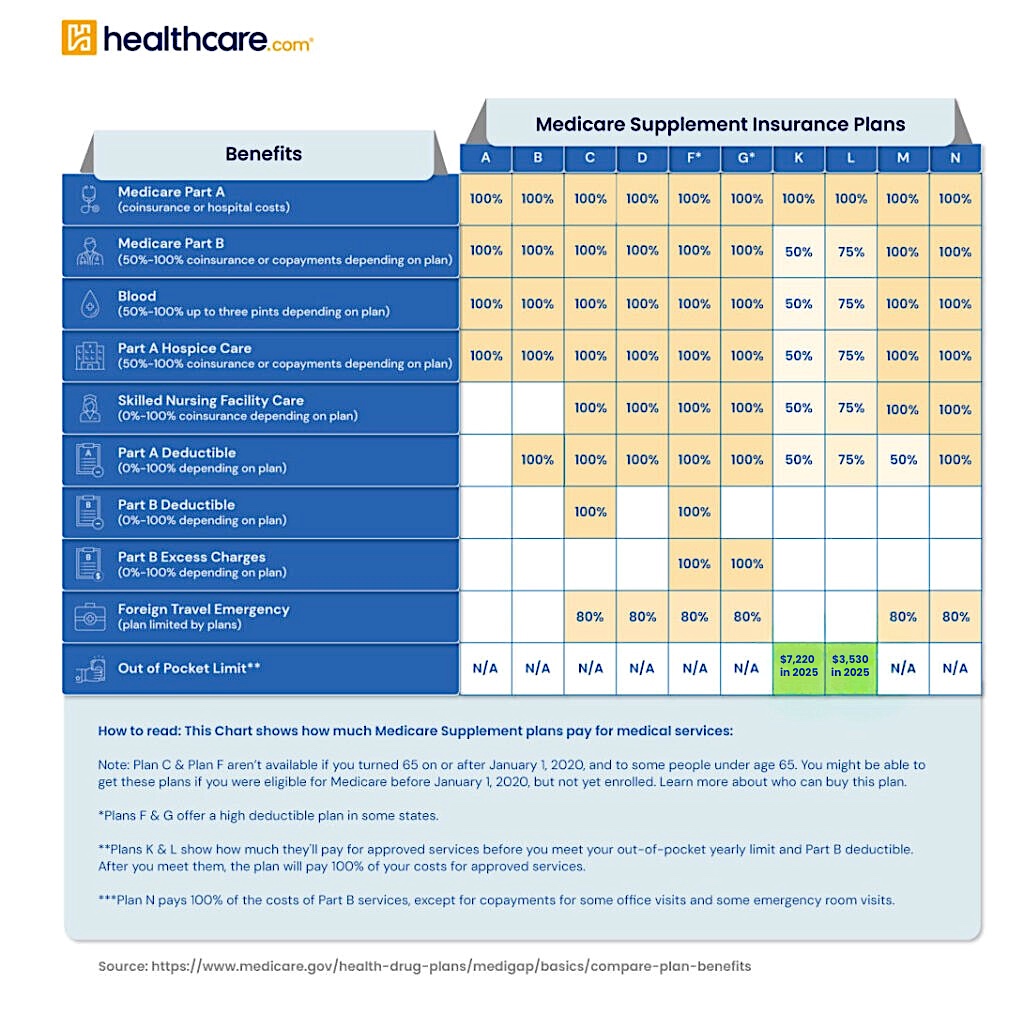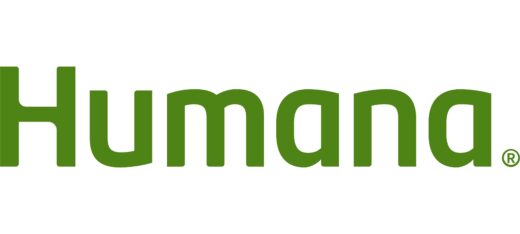Written by Tara Seboldt
HealthCare Writer
We aim to help you make informed healthcare decisions. While this post may contain links to lead generation forms, this won’t influence our writing. We follow strict editorial standards to give you the most accurate and unbiased information.
What You Need to Know
- Medicare Supplement plans, also known as Medigap, help pay for out-of-pocket costs not covered by Medicare Part A and Part B.
- Michigan insurance companies must accept your Medicare Supplement (Medigap) plan application if you’re in your Medigap Open Enrollment Period or have guaranteed issue rights.
- The three most popular Medigap policies are typically Plans F, G, and N.
What Are Medicare Supplement Plans in Michigan?
Medicare is a federal health insurance program for individuals aged 65 and older, as well as younger people with qualifying disabilities or health conditions (e.g., end-stage renal disease).
Original Medicare, which includes Part A (Hospital Insurance) and Part B (Medical Insurance), covers many healthcare services. However, it still leaves you with out-of-pocket costs like deductibles, coinsurance, and copayments. Medicare Supplement plans help pay for these expenses.
Medigap plans are standardized by letter (A through N). That means Plan A from one company offers the same benefits as Plan A from another, though premiums may differ.
Learn how these plans work and how they benefit residents of Michigan.
Compare options HERE & start your health plan journey.
When Can You Enroll in a Medicare Supplement (Medigap) Policy?
You can apply for a Medigap plan at any time. However, outside of your Medigap Open Enrollment Period—or without guaranteed issue rights—insurers may use your health history to deny coverage or charge higher premiums.
Your Medigap Open Enrollment Period lasts for six months. It begins the month you are both age 65 or older and enrolled in Medicare Part B. During this time, insurance companies must offer you any Medigap plan they sell at standard rates, regardless of your health status.
This is the best time to apply for Medigap, as it ensures access to the full range of plan options at the most favorable pricing.
Outside of this period, you may still qualify for guaranteed issue rights or a Special Enrollment Period under specific circumstances, such as moving outside your current Medicare Advantage plan’s service area or losing other health coverage.
What Are the Most Popular Medicare Supplement Plans?
Nationwide, and in Michigan, the most common Medigap plans are:
- Plan F – Offers the most comprehensive coverage, but is only available to individuals eligible for Medicare before January 1, 2020.
- Plan G – Covers everything Plan F does except for the Medicare Part B deductible. It’s a popular choice among newer enrollees.
- Plan N – Provides solid coverage with lower premiums than Plan G. It requires copayments for some doctor and ER visits and does not cover Part B excess charges.
All three plans include coverage for Medicare Part A coinsurance and hospital costs, Part B coinsurance or copayments, the first three pints of blood, hospice care, and skilled nursing facility coinsurance. Plans F and G also include coverage for foreign travel emergencies.
Compare options HERE & start your health plan journey.
How Do You Choose a Medicare Supplement Plan?
Selecting a Medigap plan involves weighing your healthcare needs and budget:
- Determine what types of care you use most often.
- Consider whether you prefer to pay higher monthly premiums for fewer out-of-pocket costs (e.g., Plan G) or lower premiums with more cost-sharing (e.g., Plan N).
- Decide between standard or high-deductible versions of Plan F or G (if available and eligible).
Once you’ve selected a plan letter, compare options from different insurers. Though the benefits are identical, premiums vary based on:
- Attained age rating – Premiums rise as you age.
- Issue age rating – Premiums are based on your age at enrollment.
- Community rating – Everyone pays the same rate regardless of age.
Use trusted tools or consult a licensed agent to compare “apples to apples”—Plan G from one insurer vs. Plan G from another.

How Much Do Medigap Policies Cost?
Medigap premiums in Michigan vary based on several factors, including:
- Age and gender
- Tobacco use
- The Medigap plan you choose (e.g., F, G, or N)
- Pricing methodology used by the insurer
What If You Want to Change Your Medicare Supplement Plan?
You may apply to switch Medigap plans at any time. However, unless you have guaranteed issue rights, insurers can require medical underwriting and may deny your application or charge more based on your health.
This makes it especially important to select the most suitable plan during your initial enrollment window.
What Are Alternatives to Medicare Supplement Plans?
Medicare Advantage plans, also known as Part C, are an alternative to Original Medicare. They are offered by Medicare-approved private insurance companies.
These bundled plans include Part A and Part B, and many also include Part D (prescription drug coverage). Additional benefits often include vision, dental, hearing, and wellness programs.
Instead of buying a Medigap and a Part D plan separately, you may consider an all-in-one Medicare Advantage plan.
Learn more about Michigan Medicare Advantage plans.
Medicare Part D
Medicare Part D plans offer standalone prescription drug coverage.
Who needs it: Anyone with Original Medicare who wants prescription coverage.
What it covers: Outpatient prescription medications. Coverage and costs vary by plan.
How it’s offered: Through Medicare-approved private insurers.
Not needed if: You’re enrolled in a Medicare Advantage plan that includes prescription drug coverage (MAPD).
Shop for a Medicare plan with additional benefits!
Do Medigap Plans Cover Prescription Drugs?
No. Medigap plans do not include prescription drug coverage. If you want coverage for medications, you’ll need to enroll in a separate Medicare Part D plan.
Medicare Resources in Michigan
Michigan residents can access free support through the following programs:
- State Health Insurance Assistance Program (SHIP) – Known locally as the Michigan Medicare/Medicaid Assistance Program (MMAP), it offers one-on-one Medicare counseling.
- Michigan Department of Insurance and Financial Services – Handles Medigap complaints and insurance regulation.
- Michigan Medicaid Program – Offers health coverage for low-income individuals and coordinates benefits with Medicare where applicable.
Next Steps
If a Medicare Supplement plan in Michigan fits your healthcare needs, take the next step by comparing available options in your area. You can research plans online or speak with a licensed insurance agent for expert help and personalized guidance.
Thank you for your feedback!
U.S. Government Website for Medicare. “What’s Medicare Supplement Insurance (Medigap)?” medicare.gov. (accessed October 24, 2020).
U.S. Government Website for Medicare. “When Can I Buy Medigap?” medicare.gov. (accessed October 24, 2020).
U.S. Government Website for Medicare. “Guaranteed Issue Rights.” medicare.gov. (accessed October 24, 2020).
U.S. Government Website for Medicare. “Special Circumstances (Special Enrollment Periods).” medicare.gov. (accessed October 24, 2020).
U.S. Government Website for Medicare. “Benefits Offered by Each Medigap Plan.” medicare.gov. (accessed October 24, 2020).
U.S. Government Website for Medicare. “Find a Medicare Plan.” medicare.gov. (accessed October 24, 2020).
U.S. Government Website for Medicare. “Medicare Advantage Plans.” medicare.gov (accessed October 24, 2020).








